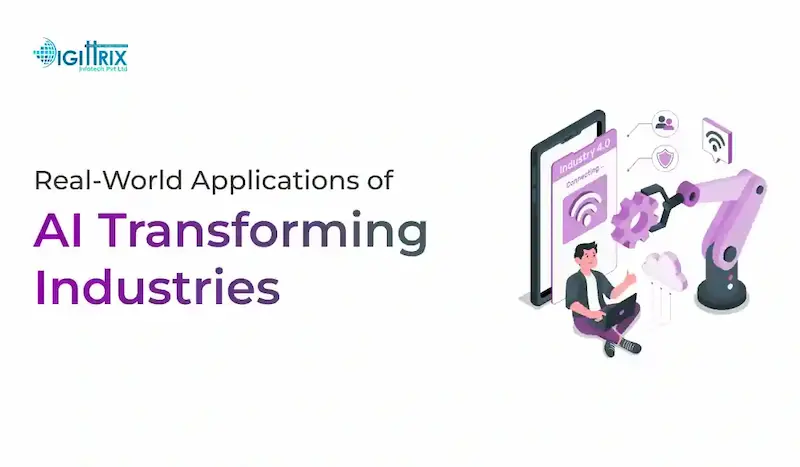When most people hear about quantum computing, they imagine futuristic labs or computers that seem like they belong in a sci-fi movie. But the reality is even more exciting. This technology is already being developed and has the potential to revolutionize the way we live and work.
From unlocking new treatments for diseases to solving complex problems like traffic optimization or climate predictions, the future applications of quantum computing explained go far beyond what today’s computers can handle. Let’s break it down in a way that’s easy to understand and see how quantum computing could touch our everyday lives.
What Makes Quantum Computing So Special?

Traditional computers operate on bits, which are either 0 or 1. Quantum computers, however, use qubits. These qubits can exist in a state of 0, 1, or both at the same time, thanks to a phenomenon called superposition. This allows quantum computers to process enormous amounts of information simultaneously, solving complex problems far beyond the capabilities of classical computers.
Another key concept is entanglement, where qubits become interconnected so that the state of one qubit affects another, even over long distances. Together, superposition and entanglement make quantum computers exponentially more powerful for certain tasks.
You may also like to read this:
Best Upcoming AI Tools For Productivity In 2025 Guide
Top 15 Latest Green Technology Innovations To Watch Now
Top 8 Blockchain Applications Beyond Cryptocurrency Today
How The Impact of 5G on Gadgets Is Changing Technology
The Big Security Challenge
While quantum computing is revolutionary, it also brings serious security risks. Most of today’s cryptography—used to protect your bank accounts, emails, and private data—relies on problems that are extremely hard for classical computers to solve. A powerful quantum computer could break many of these encryption systems in minutes.
To counter this, researchers are developing quantum-resistant cryptography, including lattice-based and code-based cryptography, which are designed to remain secure even in a quantum-powered world. Understanding these security implications is an important part of the future applications of quantum computing explained.
Transforming Industries

The future applications of quantum computing explained show that this technology has the potential to revolutionize multiple industries:
1. Medicine & Healthcare
Quantum computing could accelerate drug discovery by simulating molecules at the quantum level. This could reduce years of research into weeks and help find cures for diseases like Alzheimer’s, cancer, and rare genetic disorders faster than ever before.
It could also enable personalized medicine, tailoring treatments to an individual’s unique genetic makeup, providing highly effective therapies that were previously unimaginable.
2. Finance
Quantum computers could revolutionize financial systems. Banks and investment firms could simulate markets in real-time, detect fraud faster, optimize trading strategies, and better manage financial risk.
For example, portfolio optimization and complex derivatives calculations could be performed in seconds rather than hours or days.
3. Climate Modeling
Understanding and predicting climate change is incredibly complex. Quantum computing could analyze massive environmental datasets to create more accurate climate models, helping governments and organizations prepare for extreme weather, natural disasters, and long-term environmental challenges.
4. Artificial Intelligence (AI)
Quantum computing combined with AI could enhance machine learning by optimizing algorithms at unprecedented speeds. This could improve:
- Image and speech recognition accuracy
- Natural language processing for chatbots and translation tools
- Predictive analytics in healthcare, finance, and urban planning
5. Logistics & Supply Chains
Optimizing complex supply chains is a constant challenge. Quantum computing could calculate the most efficient routes for shipping, airlines, and delivery services, saving billions in costs, fuel, and time.
The Roadblocks Ahead
Despite its promise, quantum computing still faces challenges:
- Error-prone qubits: Current quantum computers are sensitive to environmental interference, causing computational errors.
- Developing practical algorithms: While some quantum algorithms, like Shor’s algorithm, are faster than classical ones, they are not yet ready for large-scale real-world problems.
- Hardware advancements: Innovations like topological and adiabatic quantum computing are being explored to create more stable and reliable quantum processors.
Quantum + Emerging Technology = Next-Level Innovation
The most exciting possibilities lie in combining quantum computing with other technologies. For instance:
- IoT integration: Quantum-enhanced AI could process massive amounts of IoT data in real-time.
- Renewable energy design: Quantum simulations could develop better batteries, solar cells, and wind turbines.
- Smart cities: Optimizing traffic, energy, and public services using quantum algorithms could transform urban living.
How Quantum Computing Could Change Everyday Life
The future applications of quantum computing explained aren’t limited to labs or high-tech companies. Everyday life could be impacted in ways you might not expect:
- Healthcare apps: Imagine apps that provide personalized health insights by analyzing your genetics and lifestyle using quantum-powered AI.
- Smart transportation: Traffic lights, autonomous vehicles, and public transportation routes could be optimized in real time using quantum algorithms.
- Entertainment: Streaming services could use quantum computing to recommend content with even higher accuracy, understanding user preferences at a deeper level.
Education and Workforce Development
Quantum computing will also create opportunities—and challenges—in education and the workforce. As industries adopt quantum technologies, the demand for quantum-savvy professionals will grow:
- New career paths: Quantum software engineers, quantum cryptographers, and quantum algorithm specialists will be in high demand.
- Training programs: Universities and online courses are already offering programs in quantum computing fundamentals and applications.
- Collaboration across fields: Experts from physics, computer science, finance, medicine, and logistics will need to work together to solve real-world problems.
Real-World Examples in Research
While quantum computing is still emerging, there are already promising real-world experiments and applications:
- Google’s Sycamore Processor: Demonstrated “quantum supremacy” by performing a calculation in seconds that would take a supercomputer thousands of years.
- IBM Quantum Network: Partners are exploring quantum applications in finance, chemistry, and AI.
- Pharmaceutical research: Startups are using quantum simulations to predict how molecules interact, speeding up drug discovery.
These examples show that the future applications of quantum computing explained are moving from theory to practice.
Ethical Considerations
With great power comes great responsibility. As quantum computing evolves, ethical concerns must be addressed:
- Data privacy: Ensuring quantum-resistant encryption keeps sensitive information safe.
- Job displacement: Automation and advanced optimization could impact certain industries, requiring careful planning and reskilling initiatives.
- Global access: Preventing a technological divide where only certain countries or corporations benefit from quantum computing.
Looking Ahead: What to Expect
The future applications of quantum computing explained point to a world where:
- Healthcare treatments are faster, safer, and more personalized.
- Financial systems are more efficient and secure.
- Climate predictions and environmental planning are more accurate.
- Artificial intelligence becomes smarter, faster, and more capable.
- Supply chains and logistics are optimized in real time.
While challenges like error-prone qubits, hardware limitations, and algorithm development remain, ongoing research and collaboration are steadily moving the field forward.
Conclusion
In summary, the future applications of quantum computing explained show that this technology has the potential to transform industries, improve daily life, and solve problems that were once considered unsolvable.
As quantum computing continues to advance, it’s not just about faster computations—it’s about rethinking how we approach complex problems, integrating with AI, IoT, and other emerging technologies, and preparing society for a quantum-powered future.
Quantum computing is more than a scientific curiosity—it’s the next major leap in technology, and understanding its future applications today will help us harness its potential tomorrow.
FAQs
1. What is quantum computing?
Quantum computing is a type of computing that uses qubits instead of classical bits. Unlike classical bits that are either 0 or 1, qubits can exist in multiple states at once, enabling quantum computers to process information exponentially faster for certain tasks.
2. How will quantum computing impact industries?
The future applications of quantum computing explained show it could revolutionize industries like healthcare, finance, climate modeling, logistics, and artificial intelligence by solving complex problems faster than traditional computers.
3. Will quantum computing make current encryption unsafe?
Yes, current cryptographic methods could be vulnerable to powerful quantum computers. Researchers are developing quantum-resistant cryptography to ensure data security in a quantum-powered world.
4. How could quantum computing improve healthcare?
Quantum computing could accelerate drug discovery, enable personalized medicine, and simulate complex biological processes, helping develop treatments for diseases like cancer and Alzheimer’s more efficiently.
5. Can quantum computing help fight climate change?
Absolutely. Quantum computers can analyze massive climate datasets to create more accurate models for weather prediction, resource management, and environmental planning, helping mitigate the effects of climate change.






